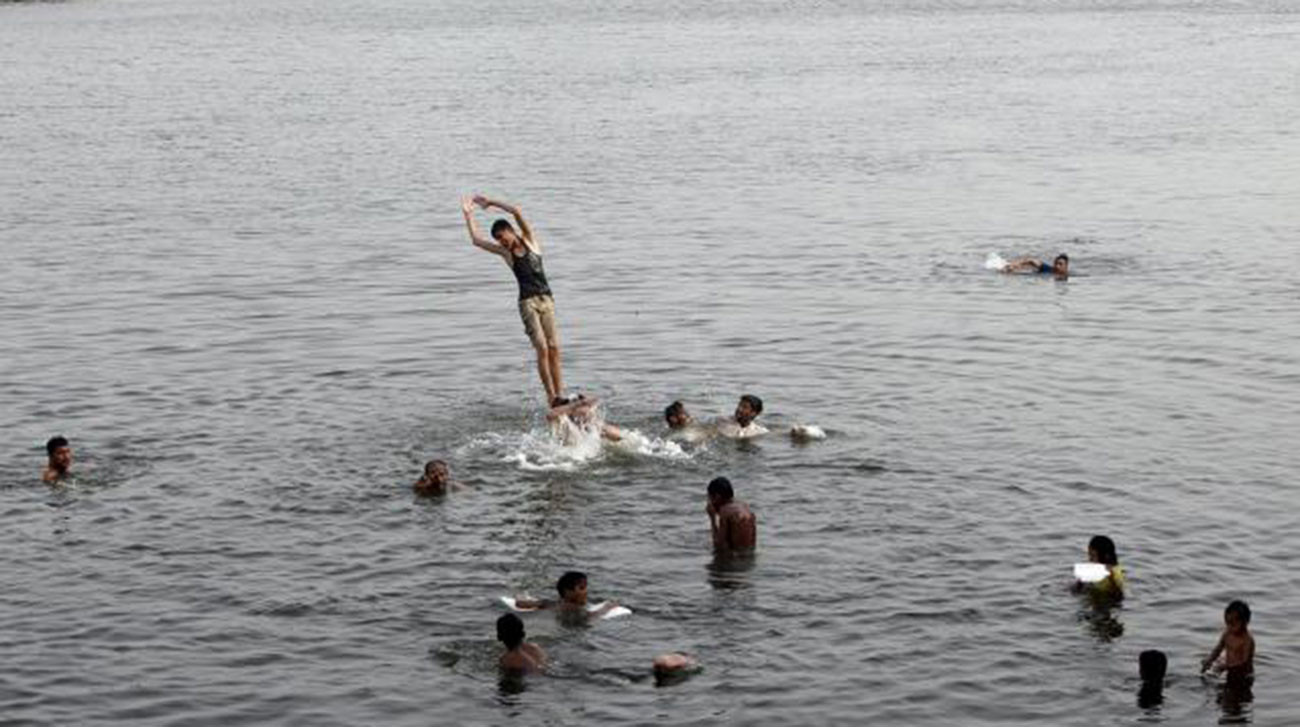
Men and children cool off during intense hot weather at China Creek in Karachi, Pakistan, June 22.
Pakistan’s prime minister called for emergency measures as the death toll from a heatwave in southern Sindh province reached nearly 700.
The National Disaster Management Authority (NDMA) said it had received orders from Nawaz Sharif to undertake immediate response measures.
The army has also been deployed to set up heat stroke centres and assist the NDMA, it added.
Many of the victims are elderly people from low income families.
Health officials say many deaths have been in the largest city, Karachi, which has experienced temperatures as high as 45C (113F) in recent days.
Hundreds of patients suffering from the effects of the heatwave are being treated at government hospitals, provincial health secretary Saeed Mangnejo said.
The demand for electricity for air conditioning has coincided with increased power needs over Ramadan, when Muslims fast during daylight hours.
Hot weather is not unusual during summer months in Pakistan, but prolonged power cuts seem to have made matters worse, the BBC’s Shahzeb Jillani reports.
Sporadic angry protests have taken place in parts of the city, with some people blaming the government and Karachi’s main power utility, K-Electric, for failing to avoid deaths, our correspondent adds.
The prime minister had announced that there would be no electricity cuts but outages have increased since the start of Ramadan, he reports.
Pakistani papers come down hard on the authorities
“The blame is squarely on the shoulders of the government for its lacklustre performance in providing water and electricity,” The Nation says bluntly, with the Daily Times agreeing that the prime minister now needs to take “some bold decisions”.
“Our levels of preparedness are exposed as woefully inadequate,” the Express Tribune declares, predicting that climate change will claim more lives in future.
The News points out that it is the poor who are the hardest hit: “The fact that we ignore poverty is one of the reasons we face the kind of crisis we are seeing now… the need to solve the power shortages we face has become critical.”
The Urdu-language paper Ummat accuses the Karachi water board of trying to cover up its “inefficiency and lethargy” by blaming K-Electric. “The matter won’t be resolved by trading allegations.”
How the body copes with extreme heat
The body’s normal core temperature is 37-38C.
If it heats up to 39-40C, the brain tells the muscles to slow down and fatigue sets in. At 40-41C heat exhaustion is likely – and above 41C the body starts to shut down.
Chemical processes start to be affected, the cells inside the body deteriorate and there is a risk of multiple organ failure.
The body cannot even sweat at this point because blood flow to the skin stops, making it feel cold and clammy.
Heatstroke – which can occur at any temperature over 40C – requires professional medical help and if not treated immediately, chances of survival can be slim.
There is a number of things people can do to help themselves. These include:
§ wearing damp clothes which will help lower the body’s temperature
§ sticking one’s hands in cold water
§ placing fans next to windows as this will draw air from outside, which should be cooler
§ wearing looser clothes
§ having a lukewarm shower rather than a cold one
§ fanning the face rather than other parts of the body
Source: The Daily Star









